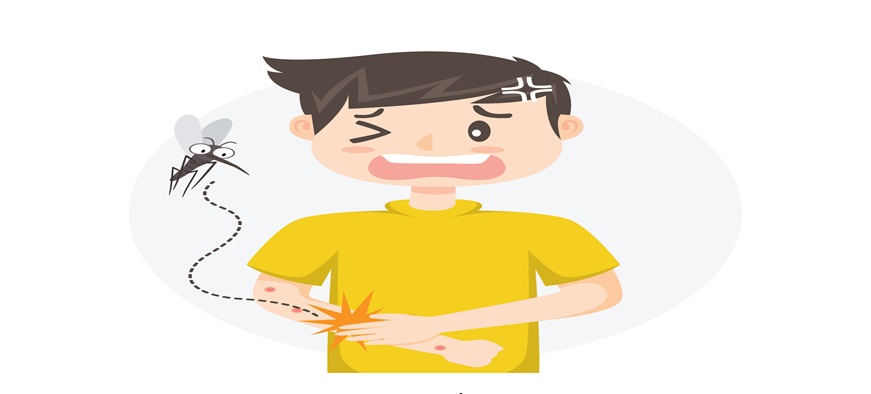





No lab centers are available in this city

Max Lab
Jul 26, 2023
Are you feeling under the weather lately? Well, you're not alone! The number of fever cases in India is on the rise, causing concern among health experts and individuals alike. In this blog post, we will explore the possible causes behind this alarming trend and discuss preventive measures that can help keep those pesky fevers at bay.
Recent data has shown a concerning trend in India - a rise in the number of fever cases. This is especially worrisome considering the ongoing COVID-19 pandemic. While there could be multiple factors contributing to this surge, one significant cause is the circulation of the H3N2 influenza virus.
H3N2, a subtype of the influenza A virus, has been responsible for outbreaks and epidemics worldwide. It tends to mutate rapidly, making it difficult to develop effective vaccines against it. The virus spreads through respiratory droplets when an infected person coughs or sneezes.
Apart from H3N2, other common viral infections like dengue and chikungunya also contribute to the rising fever cases in India. These diseases are transmitted by mosquitoes and tend to peak during monsoon seasons when mosquito breeding becomes rampant.
Another factor that cannot be overlooked is poor sanitation and hygiene practices. Inadequate waste management systems, contaminated water sources, and lack of awareness about personal hygiene can all contribute to the spread of infectious diseases causing fever.
Furthermore, overcrowding in urban areas and close living quarters facilitate easy transmission of viruses between individuals. Lack of proper ventilation further adds fuel to this fire by creating an environment conducive for disease transmission.
To address this issue effectively, there needs to be a multi-pronged approach involving public health measures such as promoting vaccination campaigns against influenza strains including H3N2. Additionally, efforts should be made towards improving sanitation infrastructure and educating people about maintaining good hygiene practices.
By taking these preventive measures seriously at both individual and community levels, we can collectively combat the rising fever cases in India and protect ourselves
Symptoms of fever include:
When it comes to diagnosing fever, healthcare professionals rely on a combination of symptoms and medical tests. The first step is usually a physical examination, where the doctor checks for signs such as increased body temperature or swollen lymph nodes. They may also ask about other symptoms you might be experiencing.
To further narrow down the cause of your fever, additional diagnostic tests may be ordered. These can include blood tests to check for infection markers, urine tests to detect urinary tract infections, or imaging studies like X-rays or CT scans to identify any underlying conditions.
Related Tests for Diagnosing Fever
In some cases, a throat swab or nasal swab may be taken to test for specific viruses or bacteria that could be causing your fever. This is particularly important in identifying viral fevers like H3N2 cases.
It's worth noting that accurate diagnosis is crucial because different causes of fever require different treatments. Therefore, seeking medical help and following through with recommended diagnostic procedures is essential in ensuring proper care and management of your condition.
When it comes to treating a fever, the goal is not only to reduce the elevated body temperature but also to address the underlying cause. The treatment options may vary depending on the severity of the fever and any associated symptoms.
One of the first steps in managing a fever is ensuring adequate rest and hydration. It's important to drink plenty of fluids, such as water, herbal tea, or clear broth, to prevent dehydration.
Over-the-counter medications like acetaminophen (Tylenol) or ibuprofen (Advil) can be used to help lower a fever and provide relief from discomfort. However, it's crucial to follow dosage instructions carefully and consult a healthcare professional if you have any concerns.
In some cases, antibiotics may be prescribed if there is an infection causing the fever. It's essential to complete the full course of antibiotics as directed by your doctor even if you start feeling better before finishing them.
Additionally, tepid sponge baths with lukewarm water can help bring down body temperature gradually. Avoid using cold water or alcohol-based rubs as they can cause shivering and further elevate body temperature.
If your fever persists for more than a few days or worsens despite home care measures, it's important to seek medical attention promptly for further evaluation and appropriate treatment.
When it comes to fever, prevention is always better than cure. Here are some simple yet effective measures you can take to reduce your risk of developing a fever:
The rising cases of fever in India, particularly due to the H3N2 virus, are a cause for concern. It is important to be aware of the symptoms and take necessary precautions to prevent its spread. By practicing good hygiene habits like washing hands regularly, avoiding close contact with sick individuals, and getting vaccinated annually, we can minimize the risk of contracting and spreading this contagious illness.

















Sign up takes less than 60 secs and gives you access to your offers, orders and lab tests.
Looks like you are not registered with us. Please Sign up to proceed
OTP will be sent to this number by SMS
We have successfully received your details. One of the agents will call you back soon.
 To reach our help desk call 9213188888
To reach our help desk call 9213188888
No Lab Centers are available in this city
Looks like you are not registered with us. Please Sign up to proceed
OTP will be sent to this number by SMS
Not Registered Yet? Signup now.Looks like you are not registered with us. Please Sign up to proceed





 7982100200
7982100200.png)
Comments